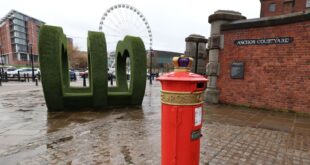Wealthy Australians who could afford to fund their aged care services are barely contributing to the sector despite a “large growth in inheritance”, the aged care royal commission heard on Thursday.
Former Aged Care Financing Authority chair Mike Callaghan said the current aged care funding model was inequitable.
He proposed the inclusion of asset tests and estate payments to support the sector.
“I think it’s totally inequitable, right across that, to think that people (earning higher income) are not paying for the full range or making a bigger contribution to the services that they require as they age,” Mr Callaghan told the inquiry.
Wealthy older Australians are increasingly passing on their wealth as inheritance rather than using it to contribute to the cost of their own care as they age.
“We have a situation now where most people don’t spend their money that they have in retirement. When they die, they haven’t dipped into them.
“And there’s very large growth in inheritances. Instead of that growth in inheritance, people should be using the assets, when they have them, they should be using more of those assets to fund the range of goods and services that they need as they age.”
Australian Health Services Research Institute director Professor Kathy Eagar said aged care should not be treated as a silo – separated from the rest of a person’s life.
“I would expand the range of accommodation options. I would want to see both smaller homes into the future and more specialised homes,” she said.
September 16: Aged care ‘horribly complex and underfunded’
The Australian aged care system has been dubbed complicated and distressing by two of the country’s prominent former senior public officials.
Former Treasury secretary Ken Henry said the system contained high levels of uncertainty adding distress to the ageing population trying to access it.
“The system overall is horribly complex and it contains a very high level of uncertainty for people,” Mr Henry told the aged care royal commission.
“Too many have little or inadequate family support, and they confront the aged care system knowing nothing about it, knowing that they have no real option but to throw themselves into the system because it’s quite simply impossible for them to look after themselves.
“It’s underfunded, it’s under-resourced and it will not be tolerated. It seemed to me that the Baby Boomers, which is a very politically powerful cohort, would not tolerate a continuance of this system.”

Former Treasury Secretary Ken Henry. Picture: Hollie Adams
Mr Henry’s comments were mirrored by former Treasurer Peter Costello who said paperwork like the assets and income test was far too complicated pushing people to fill them without adequately understanding the questions.
“For members of my family, I have attempted to fill these income and assets test. You all ought to do them. There are over 100 questions and 27 pages, and I think I’m reasonably literate and I had a lot of trouble filling it in,” he said.
“I don’t know how a person going into a nursing home will ever be able to do them.”

Former Treasurer and Chairman of the Future Fund, Peter Costello.
Mr Costello also advised against the creation of a new dedicated to funding aged care services for elderly Australia, arguing that it will “inhibit flexibility.”
The nation’s longest serving treasurer said if the government “ear marked” money for specific issues, “it doesn’t leave much for all the things we don’t like”.
“More hypothecated funds have failed than have succeeded. Even with the best intention, your hypothecation can be undone by subsequent governments. These things are only creatures of statute and statutes can be changed,” he said.
Sign up to our newsletters
Mr Costello said a government wealth fund for the aged care sector would be difficult to manage in the current economic crisis.
“Everyone always says to me why don’t we have a sovereign wealth fund for this, why don’t we have a sovereign wealth fund for that and they’re all great ideas. The hardest thing about that is finding the money to put in them,” he said.
“If you were putting money aside in the current climate where the budget’s already in $180b in deficit, what you’d be doing is putting money aside that would add to the deficit. That’s all you would be doing.”
MORE NEWS
Hollywood star emerges from bubble for Bondi surf
150 people sign up for $65m NSW solar roof scheme ‘flop’
The commission also posed to Mr Costello if using money from the sovereign Future Fund, which he chairs, could be an avenue for aged care financing.
The fund was established in 2006 to strengthen the government’s long-term financial position.
“20 years ago we are sitting down an thinking to ourselves what to do about the ageing of the population. So, we locked away $60b in 2006, set up a fund called the Future Fund and very robust governance,” he said.
“It wouldn’t be the time to do it now (taking out funds to finance aged care) and by having this fund, of course, it is on the balance sheet. This is where it adds real value. This would be (the commonwealth’s) biggest financial asset. It strengthens the credit rating,” he said.
“At the moment the government can fund itself very cheaply by borrowing. Sure, we have a massive federal deficit, sure we have a big debt. The Commonwealth is out there borrowing 10-year money at 1 per cent. That is very cheap money.”

The Aged Care Royal Commission is currently underway.
Originally published as Wealthy older Aussies ‘barely contributing to cost of aged care’


